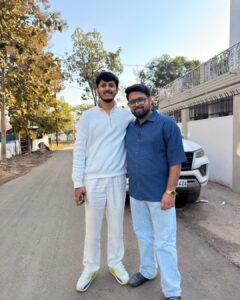Vladimir vs Volodymyr: Chronicling the Russia–Ukraine War Through Books

The Russia–Ukraine war, launched by Russia in February 2022 as a “special military operation,” has become the deadliest conflict in Europe since the Second World War. Initially expected to be a short-lived military action, it has extended into a prolonged struggle lasting more than three years. The conflict not only reshaped global geopolitics but also inspired a wave of literature attempting to document, explain, and analyze its causes and consequences. Several notable authors and journalists — including Yaroslav Trofimov, Luke Harding, Serhii Plokhy, and Mikhail Zygar have published books offering different perspectives on the war, its origins, and the leaders at its center: Vladimir Putin of Russia and Volodymyr Zelensky of Ukraine.
Yaroslav Trofimov: The Human Lens
Pulitzer Prize winning journalist Yaroslav Trofimov, chief foreign-affairs correspondent for The Wall Street Journal, provides one of the most acclaimed accounts of the war in his book Our Enemies Will Vanish: The Russian Invasion and Ukraine’s War of Independence. Born in Kyiv, Trofimov witnessed the early days of the invasion firsthand. His 400-page narrative blends battlefield reporting with personal stories of ordinary Ukrainians navigating life under constant threat.
The title itself is drawn from Ukraine’s national anthem, symbolizing resilience. Trofimov captures both the brutality of Russia’s assault and the heroism of Ukrainian resistance, crafting a moving account that reads almost like a novel while remaining firmly grounded in journalism. His work is often praised for its balance of objectivity and emotional resonance.
Luke Harding: The Geopolitical Overview
Luke Harding, veteran correspondent for The Guardian, has also chronicled the war in his book Invasion: The Inside Story of Russia’s Bloody War and Ukraine’s Fight for Survival. Harding was present in Kyiv when Russian tanks crossed the border and provides a more traditional journalistic account. At around 370 pages, his book covers not only the military and political dimensions but also the cultural clash underpinning the conflict.
Harding draws sharp contrasts between Putin and Zelensky. He describes Putin as living in “a strange and unreachable realm,” highlighting the detachment of the Russian president from ordinary reality, in stark contrast to Zelensky’s populist and relatable leadership style. Though less emotionally immersive than Trofimov’s work, Harding’s Invasion is widely regarded as essential for readers seeking a broader, analytical perspective on the war.
Serhii Plokhy: The Historian’s Context
For a more academic perspective, Serhii Plokhy, a Harvard professor of Ukrainian history, authored The Russo-Ukrainian War: The Return of History. Known for works on Russia, Ukraine, and the Chernobyl disaster, Plokhy situates the ongoing war within centuries of fraught relations between the two nations. His book argues that the invasion reflects not only Putin’s strategic ambitions but also Russia’s long-standing view of Ukraine as inseparable from its own identity.
Plokhy’s 380-page study may appear dense for casual readers, but its strength lies in historical depth and contextual clarity. By tracing ideological, cultural, and political tensions from the Tsarist and Soviet eras to the present, Plokhy demonstrates how history continues to shape contemporary conflicts.
Mikhail Zygar: The Cultural Narrative
Russian journalist and author Mikhail Zygar offers a different perspective in War and Punishment: The Story of Russian Oppression and Ukrainian Resistance. Zygar, known for his independent news outlet TV Rain and his bestselling book All the Kremlin’s Men, blends reportage with cultural and historical analysis.
His narrative portrays both Putin and Zelensky while also drawing parallels with Russian literature and history. Zygar highlights myths and narratives that fueled Russian perceptions of Ukraine, suggesting that deeply embedded cultural ideas influenced political actions. Unlike Plokhy’s scholarly tone, Zygar’s writing is more accessible, making it engaging for general readers while still providing meaningful insights.
Legacy and Significance
Collectively, these works underscore that the Russia–Ukraine war is not only a military confrontation but also a clash of identities, histories, and worldviews. Trofimov emphasizes the human struggle, Harding delivers a geopolitical panorama, Plokhy provides historical grounding, and Zygar offers a cultural critique. Together, their contributions shape how future generations will understand both the conflict itself and the larger story of Vladimir Putin versus Volodymyr Zelensky.




